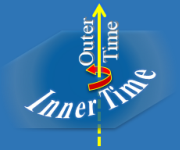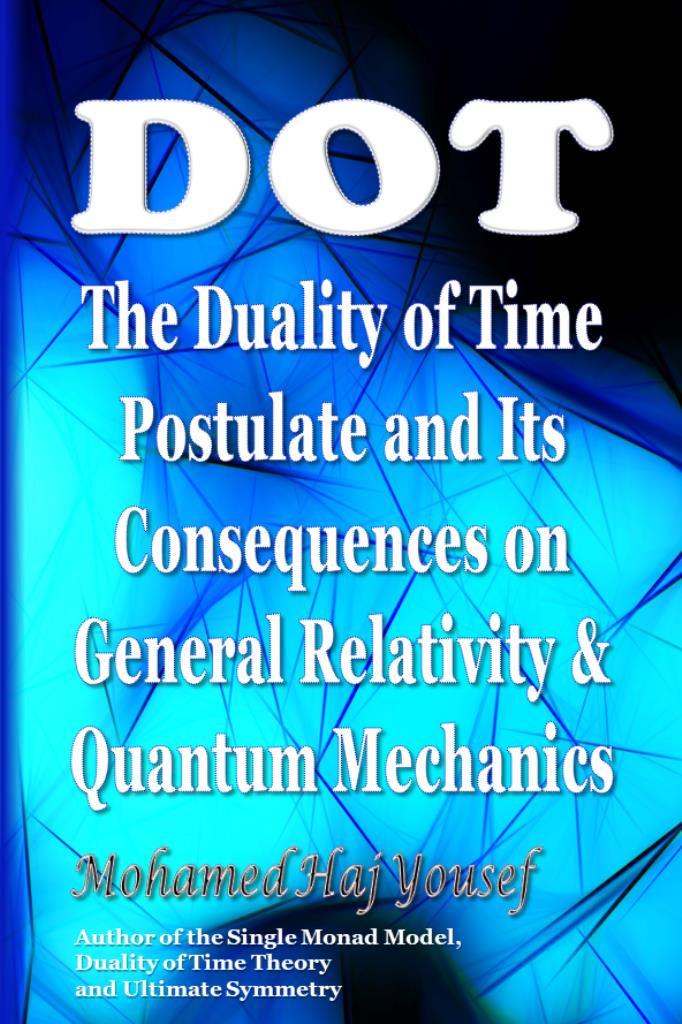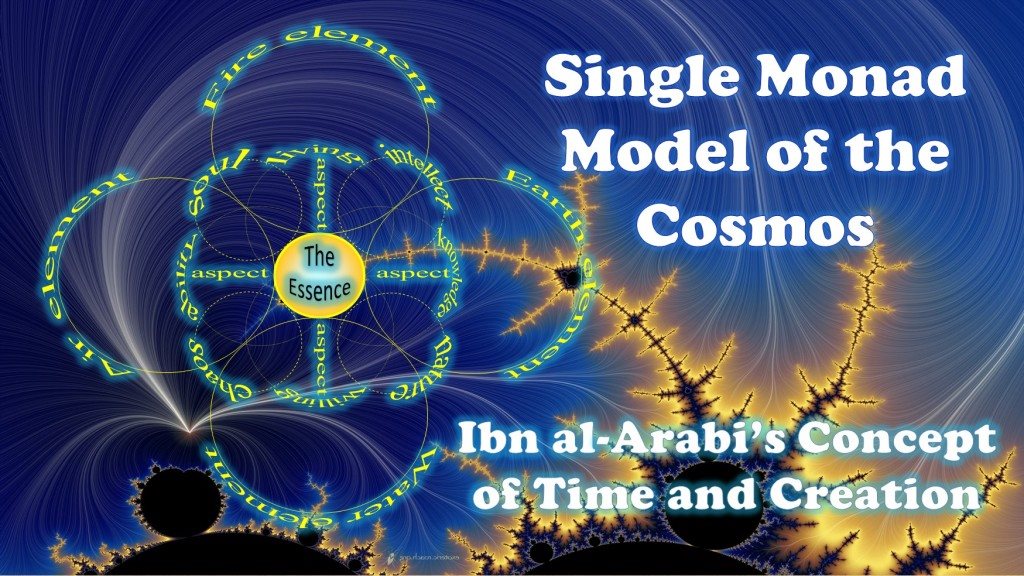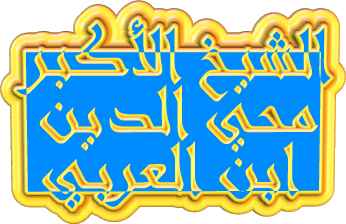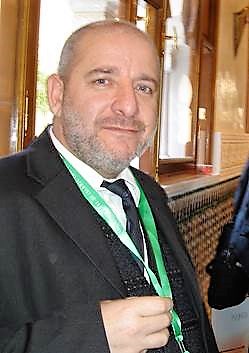Most of these introductory articles are exracted from Volume I of the Single Monad Model of the Cosmos: Ibn al-Arabi's View of Time and Creation... more on this can be found here.
Eternity
As we have already noted, the English word 'eternity' has two different Arabic synonyms; 'azal' and 'abad'. Azal is eternity without beginning (a parte ante), and abad is eternity without end (a parte post). Ibn al-Arabi showed in his short treatise 'The Book of Eternity' (Kitab al-Azal) that: 'there is nothing called eternity at all' (Kitab Al-Azal: 8-9). Eternity is in fact the negation of a beginning (or end), not endless extension: that is why Ibn al-Arabi says that eternity is a negative attribute. In this way there is no meaning to asking whether there has been any extension of time between the existence of Allah and the existence of the world, because Allah creates the world out of time, as discussed in section 3 above.
There has been a long debate amongst Islamic philosophers and theologians about the meaning of eternity and time with relation to Allah. Some philosophers say, for example, that Allah was talking in eternity in His eternal Speech, and that therefore He said in eternity take off thy shoes (20:12) to Moses, and worship thy Lord until certainty comes unto thee (15:99) to Muhammad, peace be upon them, and so on. They say that because clearly we can not say that Allah uttered these words at the time of Moses or Muhammad, therefore it must be an eternal speech. Ibn al-Arabi, however, showed in his Kitab al-Azal that all these interpretations are not proper, and that they end up confining Allah to time, which is a serious error: 'It is more proper to say that Moses heard out of time, because the Speaker spoke out of time. To let Moses become holy is better than letting al-Bari’ (the Creator) be compared to us' (Kitab Al-Azal: 5, see also: al-Masa’il, #131).
So if we take the correct meaning of the word 'eternity', which is the negation of any beginning (azal), we may ask: was there anyone in eternity with the Creator or not? There has also been a long philosophical and theological debate about that, which Ibn al-Arabi summarizes by saying:
One group said: 'the primordials (qudama) are four: the Creator, the Intellect, the Soul and the Dust (al-haba’)'.
Another group said: 'the primordials are eight (pre-existents): the Essence and the seven descriptions' (i.e. The seven primordial descriptions or attributes of Allah, drawn from earlier kalam theology: 'Life, Knowledge, Ability, Will, Hearing, Seeing and Speaking' [I.525.32]).
Another group said: 'nothing is primordial but One, and He is the exalted Real, and He is One in all aspects, but to His Essence (there is) an aspect by which He is called Able, and so on for whatever they have made a description'.
Another group took this (last) opinion, but they added to it a (new) concept. And this concept is called 'the Reality of Realities', which is neither existing nor non-existing, but it is primordial with the primordial and created with the created; it can be imagined, but it does not exist by itself, like universality (‘alamiyya) and so on (Kitab Al-Azal: 8-9).
Clearly, the Sufis are among the last group, and Ibn al-Arabi in particular relates the beginning of creation to 'the Reality of Realities' (haqiqat al-haqa’iq), and sometimes he calls it: 'the Universal Reality' (al-haqiqa al-kulliyya) or 'the Muhammadan Reality' (al-haqiqa al-muhammadiyya). He stated in chapter 6 of the Futuhat that the beginning of the spiritual creation is the 'Dust', and that the first existent within it was the 'Muhammadan Reality of (divine) Mercy' (al-haqiqa al-muhammadiyya al-rahmaniyya) that is not confined to space, and that it is created from the 'Known Reality' (al-haqiqat al-ma‘luma) that can not be described by either existence nor non-existence [I.118.5]. Ibn al-Arabi claims that only the Sufis have introduced the concept of 'the Reality of Realities' (haqiqat al-haqa’iq), although he admits that the Mu‘tazilites drew attention to something similar to this notion when they tried to escape the accusation that their understanding of the divine Attributes postulated the real existence of additional realities other than the Essence of the Real [II.433.14, SPK: 134-9].
... Space Transcendence Read this short concise exploration of the Duality of Time Postulate: DoT: The Duality of Time Postulate and Its Consequences on General Relativity and Quantum Mechanics ...
... ndence Read this short concise exploration of the Duality of Time Postulate: DoT: The Duality of Time Postulate and Its Consequences on General Relativity and Quantum Mechanics ...
... the English word 'eternity' has two different Arabic synonyms; 'azal' and 'abad'. Azal is eternity without beginning (a parte ante), and abad is eternity without end (a parte post). Ibn al-Arabi showed in his short treatise 'The Book of Eternity' (Kitab al-Azal) that: 'there is nothing ca ...
... '. Another group said: 'the primordials are eight (pre-existents): the Essence and the seven descriptions' (i.e. The seven primordial descriptions or attributes of Allah, drawn from earlier KALAM THEOLOGY : 'Life, Knowledge, Ability, Will, Hearing, Seeing and Speaking' [I.525.32]). Another ...
... ternity' has two different Arabic synonyms; 'azal' and 'abad'. Azal is eternity without beginning (a parte ante), and abad is eternity without end (a parte post). Ibn al-Arabi showed in his SHORT TREATISE 'The Book of Eternity' (Kitab al-Azal) that: 'there is nothing called eternity at all ...
... y, the Sufis are among the last group, and Ibn al-Arabi in particular relates the beginning of creation to 'the Reality of Realities' (haqiqat al-haqa’iq), and sometimes he calls it: 'the Universal Reality' (al-haqiqa al-kulliyya) or 'the Muhammadan Reality' (al-haqiqa al-muhammadiyya). ...
... ion of time between the existence of Allah and the existence of the world, because Allah creates the world out of time, as discussed in section 3 above. There has been a long debate amongst Islamic philosophers and theologians about the meaning of eternity and time with relation to Allah. ...
... re is nothing called eternity at all' (Kitab Al-Azal: 8-9). Eternity is in fact the negation of a beginning (or end), not endless extension: that is why Ibn al-Arabi says that eternity is a NEGATIVE ATTRIBUTE . In this way there is no meaning to asking whether there has been any extension o ...
... have already noted, the English word 'eternity' has two different Arabic synonyms; 'azal' and 'abad'. Azal is eternity without beginning (a parte ante), and abad is eternity without end (a PARTE POST ). Ibn al-Arabi showed in his short treatise 'The Book of Eternity' (Kitab al-Azal) that: ...
... more on this can be found here . Eternity As we have already noted, the English word 'eternity' has two different Arabic synonyms; 'azal' and 'abad'. Azal is eternity without beginning (a PARTE ANTE ), and abad is eternity without end (a parte post). Ibn al-Arabi showed in his short treat ...
... les are exracted from Volume I of the Single Monad Model of the Cosmos: Ibn al-Arabi's View of Time and Creation... more on this can be found here . Eternity As we have already noted, the English word 'eternity' has two different Arabic synonyms; 'azal' and 'abad'. Azal is eternity witho ...
... negation of any beginning (azal), we may ask: was there anyone in eternity with the Creator or not? There has also been a long philosophical and theological debate about that, which Ibn al-Arabi summarizes by saying: One group said: 'the primordials (qudama) are four: the Creator, the Int ...

